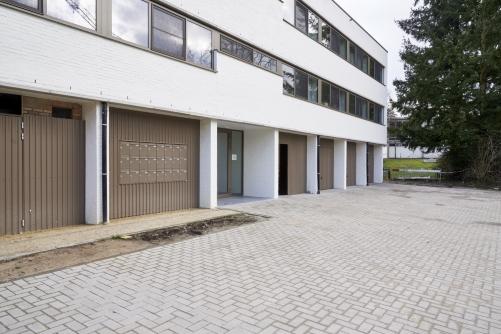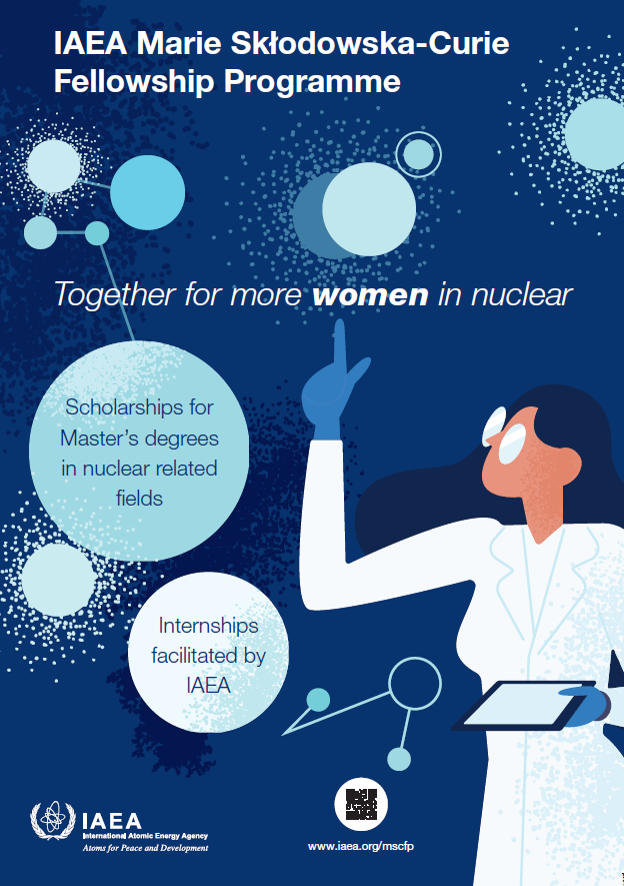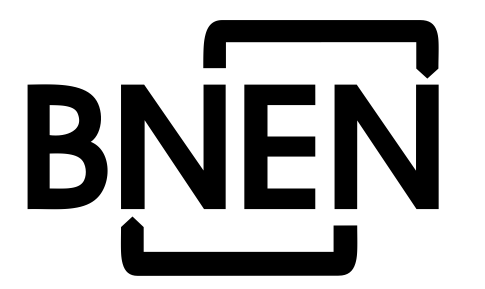How to apply?

Admission criteria
The BNEN programme has a limited capacity of enrollment, as lab sessions are organized at the premises of the SCK CEN research center, using its experimental facilities. Consequently, all admissions are conditional and subject to a decision by the BNEN Steering Committee. Admission to the BNEN programme can be considered for the following possibly eligible cases:
-
- the holders of an academic degree of “master en sciences de l'ingénieur, orientation ingénieur civil” from the “Communauté française de Belgique” or an academic degree of « Master of science in de ingenieurswetenschappen (burgelijke ingenieur)” from the “Vlaamse Gemeenschap van België”, given a sufficient scientific/technical background required for the BNEN courses, whereby the BNEN Steering Committee may impose additional background courses (for a maximum number of 15 ECTS), taking into account the contents of the curriculum already completed;
- the holders of an academic degree similar and considered equivalent to those mentioned above, under the same conditions;
- the holders of an academic degree similar and considered equivalent to those mentioned above, delivered by the Royal Military School, under the same conditions.
- the holders of an academic degree of “master en sciences industrielles ou de master en sciences de l'ingénieur industriel” from the “Communauté française de Belgique” or an academic degree of “master in de industriële wetenschappen, industrieel ingenieur” from the “Vlaamse Gemeenschap van België”, whereby the BNEN Steering Committee will impose an additional set of background courses (for a maximum number of 60 ECTS), taking into account the contents of the curriculum already completed, and whereby previously relevant background courses may be valorized and accepted for credit transfer;1
- If the student registers in an institution of the “Communauté française de Belgique”, these additional credits are then part of the « master de spécialisation » the student will enroll in and they are a prerequisite for the regular BNEN programme of 60 ECTS.
- If the student registers in an institution of the “Vlaamse Gemeenschap van België”, these additional credits are part of a preparatory “make up” programme2, before possibly being admitted to the BNEN programme of 60 ECTS.
- the holders of an academic degree of “master en sciences chimiques, physiques, mathématiques ou informatiques” or “master en sciences de l'ingénieur orientation bioingénieur” from the “Communauté française de Belgique”, or an academic degree of “master in de chemie, in de fysica, in de wiskunde of in de informatica” or “master in de bio-ingenieurswetenschappen” from the “Vlaamse Gemeenschap van België”, or holders of an academic degree similar and equivalent to those just mentioned, whereby the BNEN Steering Committee will impose an additional set of background courses (for a maximum number of 60 ECTS), taking into account the contents of the curriculum already completed, and whereby previously relevant background courses may be valorized and accepted for credit transfer;3
- If the student registers in an institution of the “Communauté française de Belgique”, these additional credits are then part of the « master de spécialisation » the student will enroll in and they are a prerequisite for the regular BNEN programme of 60 ECTS.
- If the student registers in an institution of the “Vlaamse Gemeenschap van België”, these additional credits are part of a preparatory “make up” programme2, before possibly being admitted to the BNEN programme of 60 ECTS.
- the holders of a foreign academic degree judged similar to the academic degrees delivered by either the “Communauté française de Belgique” or the “Vlaamse Gemeenschap van België”, mentioned in the above items, under the same conditions (i.e. basic master programme of at least 300 ECTS and depending on the acquired background in the curriculum and the level of abstraction) and according to the prescriptions of the respective decrees;
The clearance to access the control zone of the SCK CEN is delivered by the Federal Agency for Nuclear Control (FANC) and must be obtained to take part in laboratory sessions of the BNEN programme. This clearance by FANC is a precondition to the BNEN programme and as such, all “admissions” given by the BNEN Steering Committee are conditional and thus “provisional”. The “provisional” admission will be automatically cancelled if this clearance is not timely received by the student.
1 As an example, typical “make up programmes” amount to about 30 ECTS for applicants with an electro-mechanical background. For applicants with a different background, like ICT, the “make up programme” may be close to 60 ECTS.
3 As an example, typical “make up programmes” amount to about 30 ECTS for applicants with a physics background. For applicants with a different background, like ICT, the “make up programme” may be closer to 60 ECTS.
-
Preparatory programme for students having obtained the Master diploma of UHasselt/KU Leuven “Master in de industriële wetenschappen: nucleaire technologie”
Application process
STEP 1: Acceptance by the BNEN Teaching Committee
An application file consists of, at least:
- the registration form (2024-2025);
- a motivated application letter;
- a curriculum vitae;
- transcripts of academic results;
- when applying for a grant, a declaration of the non-employment situation (limited number of grants)
Send your application file to:
Kris Pennemans
SCK CEN
Boeretang 200
B-2400 Mol
BELGIUME-mail: (bnen [at] sckcen [dot] be)
STEP 2: Registration in one of the six partner universities
After approval by the Teaching Committee students need to register at one of the six universities.
Pay attention to all the registration procedures at your university! There can be problems when you want to spread the programme over more than 1 year. The processes at the Flemish universities are different than the ones at the French speaking side of the country.
For more information, contact the administration department of the university of your choice.
STEP 3: Access to the Belgian Nuclear Research Centre
All candidates will be screened by the Belgian Federal Agency for Nuclear Control for clearance and access to the nuclear infrastructure of SCK CEN. Admission to the programme will depend on clearance and access being granted.
Registration deadlines
- International students: March 31, 2024
- Belgian students: June 15, 2024

Housing @ SCK CEN

Apply for the IAEA Marie Sklodowska-Curie Fellowship Programme
The IAEA Marie Sklodowska-Curie Fellowship Programme (MSCFP) aims to inspire and encourage young women to pursue a career in nuclear related fields, by providing highly motivated female students with scholarships for Master’s programmes and an opportunity to pursue an internship facilitated by the IAEA.
Scholarships are awarded annually, to 100+ female students, subject to availability of funds. In the selection of students, consideration is given to geographic and field of study diversity, in addition to eligibility requirements and other criteria. The selected students are awarded up to €20,000 for tuition costs and up to €20,000 for living costs for their Master’s programme.
The next application call opens mid-July 2023 and will close by beginning of October 2023.
